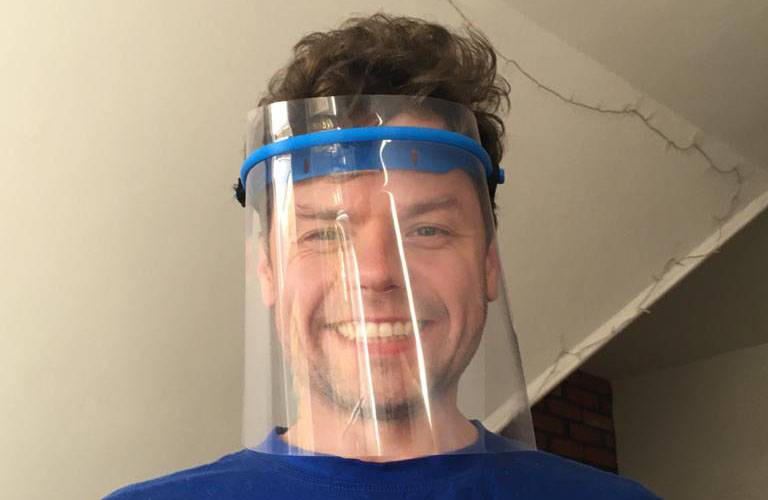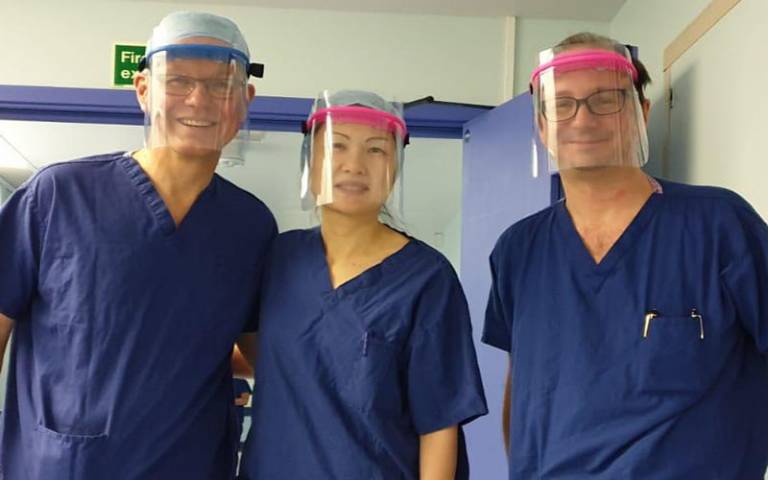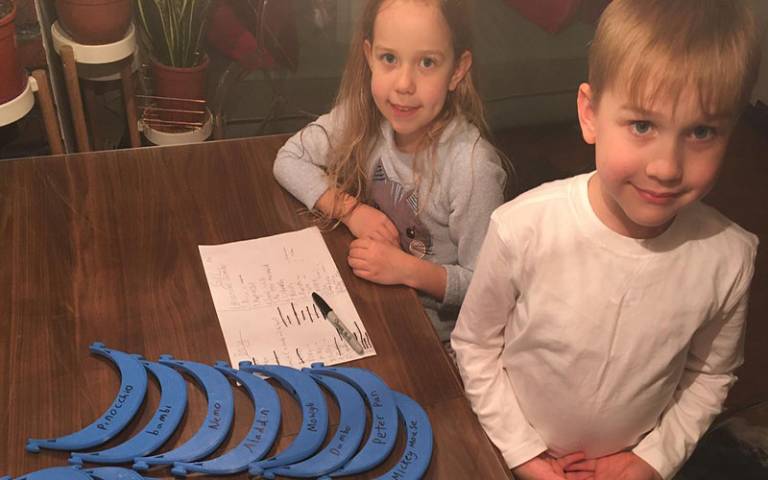3D printing for the NHS: engineer Daniil and his family among UCL staff creating PPE at home
3 June 2020
UCL engineers and their families are rising to the current extraordinary circumstances of the coronavirus situation, organising a “cottage industry” of home-made 3D printed face visors for the NHS and others on the front line.

As the need for personal protective equipment (PPE) due to Covid-19 continues to put pressure on healthcare systems and other essential working environments around the world, some UCL engineers have taken it upon themselves to do what they can from their homes. Using only one 3D printer and a limited amount of material, Dr Daniil Nikitichev (UCL Mechanical Engineering) has supplied several hospitals and a home for disabled children with face visors. But he is not alone – he is part of a network of UCL academics and clinicians sharing knowledge and resources, and his work is aided by three enthusiastic assistants: his children Matvey (12), Eva (8) and Adrian (6).

From blueprints to raw materials and the resources to pay for them, UCL engineers pulled together and crowdsourced the components required to develop dozens of visors and deliver them to Royal Free. A funding page has been set up, to support the work that so many engineers are spontaneously contributing to, either financially, or with their own free time.
“It's important for me as a parent to teach my children that in life, you have to do not only what you like to do, but what is important for the community”, says Daniil. His children have been eager to help in the assembly of the visors, while Matvey, the oldest of the three, has assisted in checking on the printer as it works around the clock at times, printing visor parts for the next batch.
Their contribution also includes a personal touch: naming each visor after characters from their favourite animated and family films. From Shrek to the Little Mermaid and Winnie the Pooh, Janice describes the joy of receiving the visors and sharing them with her colleagues. “Each one is lovingly named after Disney [or other] characters, which just really adds a smile on people's face at this time; this really made a difference. And for me, really — I know it sounds a bit corny – it gives me a warm feeling, when I use them and hand them out.”

The visors, which are worn in addition to face masks and gowns, serve as protection for the wearer’s eyes, nose and mouth from droplets in the air, caused by coughing. They are reusable, but must be properly cleaned and cared for, which takes up the valuable time of nurses in the intensive care unit (ICU). Janice comments, “Colleagues were reporting that visors [in the ICU] were being reused, cleaned by busy nursing staff. The trouble is if they become a bit old and scratched, or if not dried properly after cleaning, visibility in them is poor. Not something you want to hear when you are about to go into ICU to do procedures such as vascular access lines.”
Watch the video to see how the visors are assembled, and hear from some of the UCL engineers and clinical staff who are contributing to the incredible efforts of fighting the Covid-19 outbreak.
With thanks to Zoë Ohman.
Further information
- Crowdfunding: 3D printing for the NHS
- UCL-Ventura CPAP breathing aid
- UCL coronavirus support website
- Dr Nikitichev's academic profile
- Prof Diaz's academic profile
- UCL Mechanical Engineering
Images
- Credit: Dr Daniil Nikitichev
 Close
Close

